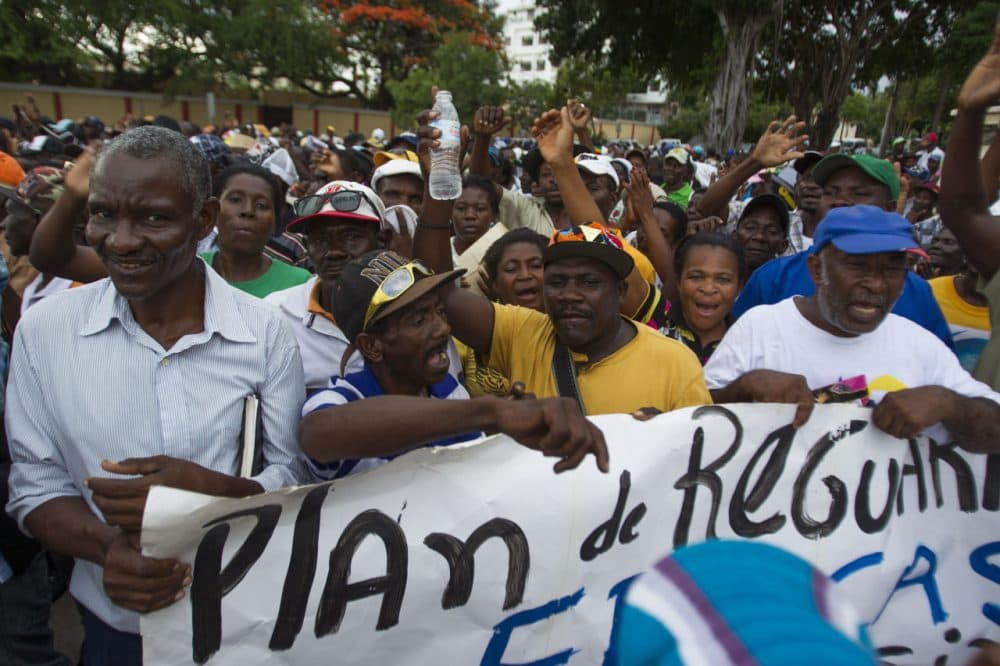Advertisement
Haiti Observes 100th Anniversary Of 19-Year U.S. Occupation
Resume
A report from the United Nations this week says 19,000 Haitians and Dominicans of Haitian descent have fled the Dominican Republic for Haiti in recent weeks because of deportation threats and persecution.
In 2013, a Dominican high court decision retroactively denationalized children born to undocumented parents there, and later the government threatened to expel anyone who hadn't managed to establish legal residency by June 17 of this year.
The treatment of Haitians in the Dominican Republic has drawn criticism from political leaders in the U.S., but the U.S.' role in the roots of the problem is rarely discussed.
Government and foreign affairs professor Robert Fatton joins Here & Now's Robin Young to talk about what some call "the forgotten occupation."
Guest
- Robert Fatton, professor of government and foreign affairs at the University of Virginia.
This segment aired on July 30, 2015.
